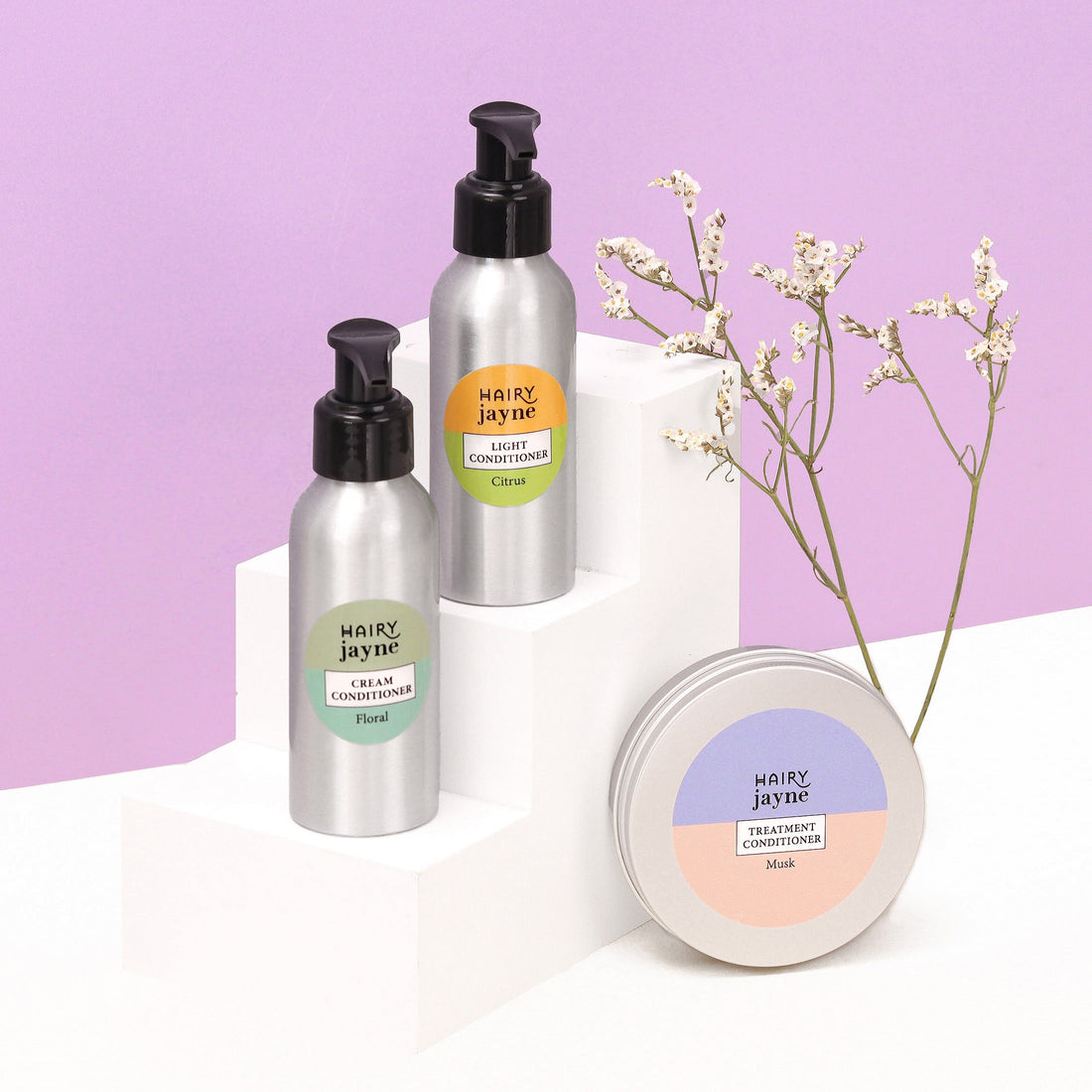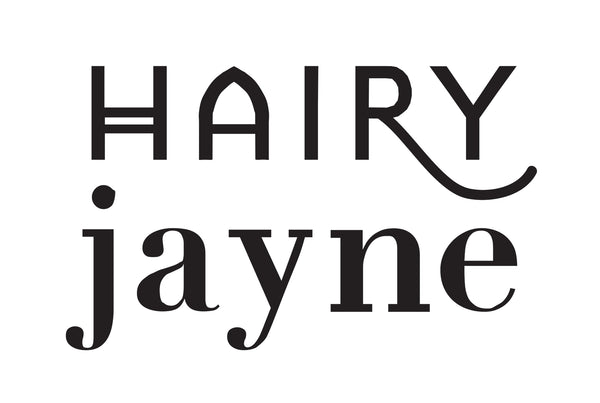
Do you really need conditioner after shampooing?
If you've ever wondered whether conditioner is really necessary or just an extra step in your hair routine, you’re not alone. Some people couldn’t live without it, while others think it's just a marketing gimmick. And which type is the healthiest hair conditioner?
Conditioner plays a crucial role in keeping your hair healthy, soft, and manageable. Whether you have long, short, curly, or straight hair, using the right conditioner can make all the difference. Let’s start with a little hair science to help explain why (don’t worry, I’ll keep it simple).
The science of hair
Hair is mostly made up of keratin, a protein that gives it strength and structure. Each strand of hair has a protective outer layer called the cuticle, which can become damaged due to heat styling, colouring, and environmental factors like pollution and prolonged sun exposure.
When the cuticle is rough or broken, hair appears dull, frizzy, and prone to breakage. This is where conditioner comes in—it helps smooth the cuticle, locking in moisture and keeping your hair looking and feeling its best.

What does hair conditioner actually do?
Conditioner is designed to retain moisture in your hair, restore shine and make your hair easier to detangle. While shampoo cleanses the scalp and removes dirt, oil and product buildup, it can also remove the natural oils that keep your hair naturally moisturised and slightly raise the cuticle.
A good hair conditioner should work in two ways – absorption and adsorption (two different words!). Adsorption helps retain the moisture in the hair by coating the hair strands with protective ingredients, keeping them smooth, soft, and shiny. Absorption is when a good hair conditioner is left on for a short period of time to soak into the hair and get beneath the cuticle to nourish the hair within.
Finding the healthiest hair conditioner for you
When it comes to types of conditioners and finding the healthiest hair conditioner for you, different hair types and needs call for different formulas.
Here are the main types of hair conditioner:
- Rinse-out conditioner – the most common type, applied in the shower after shampooing and rinsed out after a minute or two. Great for everyday hydration and smoothing.
- Leave-in conditioner – a lighter, no-rinse formula that provides extra moisture and protection throughout the day. Ideal for frizzy, dry, or curly hair that needs a little extra care.
- Deep conditioner or hair mask – a more intensive treatment designed to penetrate the hair shaft and provide deep hydration. These are perfect for damaged or dry hair and are usually used once a week to keep moisture and protein levels maintained.
- Co-wash (cleansing conditioner) – a conditioning product with mild cleansing properties, used instead of shampoo. Great for curly or textured hair that doesn’t get oily quickly and benefits from extra moisture.
- Conditioner bars – a solid alternative to liquid conditioners, perfect for those looking for the most sustainable or travel-friendly option. Solid conditioner bars are like traditional conditioner but without any added water and without the plastic bottle.
[product=conditioner-bar|variants=Floral / Box,Floral / Tin,Floral / Naked,Citrus / Box,Citrus / Tin,Citrus / Naked,Musk / Box,Musk / Tin,Musk / Naked,Herbal / Box,Herbal / Tin,Herbal / Naked]
Solid natural conditioner bars are great for your hair and the planet
[/product]
How conditioner helps keep your hair healthy
Conditioner contributes largely to overall hair health:
- Helps keep dry hair moisturised – dry hair is more prone to breakage and split ends. A good natural conditioner slows the evaporation of moisture from the hair strands, keeping them strong and flexible.
- Smoothes and detangles – struggling with knots and tangles after washing your hair is bad for your hair’s health. Hair is at it’s weakest when it is wet. Conditioner helps smooth the hair strands, making it easier to comb through which reduces breakage and split ends.
- Adds shine – natural conditioners tend to have natural oils in that seal the hair cuticle to help reflect the light, giving your hair a healthy shine.
- Reduces frizz – the sealing of the hair cuticle and smoothing of the hair strands reduces the appearance of frizz. Frizz is usually caused by dryness and friction and a good natural conditioner minimises both.
- Protects against damage – the adsorption of ingredients in hair conditioners forms a protective barrier that minimises damage from brushing, heat styling and other environmental damage.
What to look for in a good natural conditioner
The more natural approach to hair care is not only better for your hair but for the planet, too. There are plenty of conditioners with nourishing, plant-based ingredients and no harsh chemicals. Packaging is also key if you want to be as sustainably minded as possible, with either conditioner refills or bars.
• Humectant ingredients — natural humectants draw water particles from the atmosphere into the hair strands to keep them hydrated all day. These ingredients include aloe vera, sorbitol and panthenol.
• Moisturising ingredients — natural oils like coconut, argan and jojoba oils are known as emollients. They help to keep hair feeling soft, hydrated and strong by slowing the evaporation of water particles (moisture) and preventing dryness.
• Protein ingredients like hydrolyzed wheat protein (vegan keratin) act like strengthening agents to help repair damage to the cuticle and fortify hair strands.
• Essential oils for hair and scalp health – natural essential oils like rosemary, lavender and tea tree can help calm and nourish the scalp and promote hair growth.
• Refillable hair conditioners are a great low waste option. Rather than buying a plastic bottle every time (which will no doubt end up in landfill) look for conditioner refills that come in biodegradable pouches.
• Conditioner in a box. For the most sustainable packaging option, consider solid conditioner bars. They are completely plastic free and the cardboard outer box is 100% recyclable. Plus they save water, too (there’s already water in the shower!). Win, win.
Does all hair need conditioner after shampooing?
Hair that is cropped short, especially fine short hair, is a lot ‘newer’ than longer hair, so probably doesn’t always need conditioner after shampoo. However, if you have short hair that tends to appear fluffy (and that’s not the look you’re going for), then I’d recommend using a very light conditioner to combat this.
If you have fine hair that tends to get weighed down or too limp from using conditioner, I would recommend the ‘reverse washing’ method of conditioning first, leaving it on for as long as possible in the shower, and then shampooing lightly. This way your hair gets the benefit of some of the absorption but any heavy residue of conditioner is removed.
Another thing to try would be to use a light conditioning leave-in spray. I have an at-home leave-in conditioner DIY that you could try making to see if that works better for you.
So, do you really need conditioner?
The short answer? Yes, for most people, you really need conditioner to keep your hair hydrated, strong and manageable. However there are a (very) few types of hair that will get enough conditioning from a nourishing shampoo alone.
Whether you use a rinse-out refillable hair conditioner, a DIY leave-in conditioner spray or a solid conditioner bar, adding this step to your routine can make a huge difference to your hair’s health.
If you’re unsure which conditioner is right for you, start with one that matches your hair type and needs. And if you’re switching over to a natural option, be patient — your hair might take a little time to adjust, but the results will be worth it.
